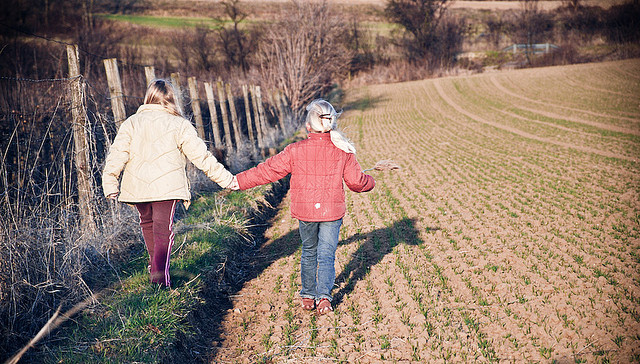
There is a long, jagged white line that snakes up my forearm reminding me daily of when I worked in a bakery.
A small roundish mark on my wrist from tumbling off a skateboard, a pale pink strip up my shin from a failed box jump and countless other faded marks on me, inside and out, reminding me of time gone by.
The scars I give myself—the scars I am responsible for on the outside—protect my soft interior, where scars from others still aren’t healed.
Sometimes I feel the shadow of my past self, feel the pull of old habits, gestures, expressions. They come without warning, and feel somewhat unfamiliar, out of practice. Waves of nostalgia often follow. I find my mind full of reminiscences of past events, good times and bad, old friends and other places, and loves lost and found.
It’s easy to get absorbed in these memories—to idealize them until we start pining for things that were and forget about what is and what may be. We can get stuck. Maybe that’s why so much of modern wisdom suggests that we forget the past and move on. Live in the moment, embrace the present, have fun because you only live once.
But what if we can’t? And what if that’s because we shouldn’t?
We are all the sum of our experiences, of everything that we have ever thought, lived and dreamed. These make us who we are and who we will become. We can’t undo what’s done. The past is inscribed in the very essence of our being, forever and always. We shouldn’t fight it, but we can’t ignore it either.
We should embrace it—love it for what it has made us and taught us, where we are because of it.
Almost every memory that I have from the ages of five to 20 are full of my best friend. We spent countless days together, running back and forth across the street between our houses, laughing at a million kinds of nothing.
No two girls could be more opposite. She was pretty, popular, outgoing and athletic, while I preferred books to sports, and sat in the back of my classes, unnoticed. Yet no story ever told could conceive of a pair more contented. Saturdays were full of secret adventures, swinging on the play set in the backyard making plans for clubs whose member lists never exceeded two. Once it was a spy club, but that quickly dissolved into helpless giggles in the midst of a fruitless attempt to eavesdrop on my brother. Another day we started our own version of a babysitters club, though not one quite successful enough to inspire an accompanying novelization.
By high school, our duo was infamous. We spoke in code, seemed to read each other’s minds, toed the line of trouble in all sorts of shenanigans and composed the most elaborate handshake you wish you could be lucky enough to see. We were family—sisters.
We haven’t spoken to each other in five years.
Things started changing in college. Our differences polarized as we became the adult versions of ourselves. Then there was a fight, words intended to hurt that succeeded all too well. And that was the end of it all.
For years afterwards I did everything in my power to never think about my former best friend. I went into mourning. I didn’t know who I was without her, and every day I could feel the gaping hole in my existence that she’d made with one swift slamming of a door.
The only way for me to get through that time was to shove every memory of our friendship out of my mind, to repress and ignore it all. Thinking about it made me feel as if I couldn’t breathe, pressed down by guilt, shame, and sadness.
But without those memories, I felt like just the outline of myself.
I forgot what it meant to have a best friend—to be a best friend. Pushing away all those memories of my childhood made me lose a part of myself that I need, that I miss every day.
We’re all collections of moments, of memories, feelings, and choices. We curate our minds continuously, deciding what to put on display and what to tuck away. But just because some pieces might go out of style doesn’t mean we should throw them out. Every item is essential for the collection to be complete—triumphs and tribulations, rewards and failures, even that homemade t-shirt from high school. They are the parts that form us.
Ignoring the past doesn’t heal us from its hurts; it’s like putting a bandaid on a broken limb. When I finally decided to face the ghosts of my past head on, it felt as though I were re-opening half-healed wounds, with sharp, stabbing, all-consuming pain. But once the pain subsided, those wounds started to actually heal, to fade into pale shadows on my heart like the lines of old injuries on my skin.
Painful or pleasant, and everything in-between, our memories become scars to remind us of the past and prepare us for the future.
No matter how much we may wish it, we can’t undo what’s been done—can’t change what was. We have now, and the hope for tomorrow. Maybe revisiting those lost bits of our past can make the present a little bit better, and the future a little bit brighter.
~
Relephant Read:
A Letter to my Future Self: Remember the Hard Days. {Poem}
~
Author: Gabriella Sweezey
Editor: Toby Israel
Photo: Bekassine at Flickr
~





Read 0 comments and reply